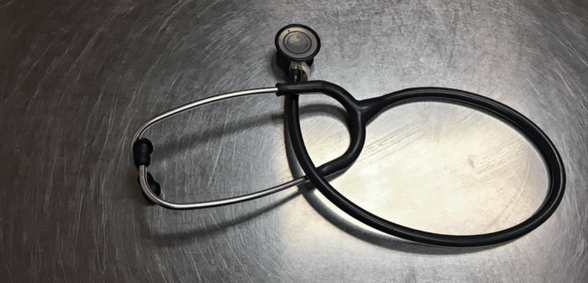
CREDIT: This story was first seen in The Plymouth Herald
GPs in Plymouth held a crisis meeting on how to tackle the struggles in primary care, The Plymouth Herald reports.
One in seven GP posts in Plymouth are unfilled, NHS England has revealed.
Doctors from across the city gathered January 12 for a ‘GP crisis’ meeting in a follow-up to a summit for Plymouth GPs which took place in September to discuss how to tackle ever growing concerns around primary care.
GPs discussed how a lack of funding in both support services and primary care was making it hard to recruit new GPs or retain them.
As it stands, 15% of GP vacancies remain unfilled in the Plymouth area, with 25 positions still up for grabs.
In September, healthcare professionals gathered at Plymouth University for a conference to address how to tackle primary care issues affecting the whole of the country.
Following a meeting with Plymouth practices in August to discuss ongoing pressures, NHS England and the NEW Devon CCG developed a series of short-term measures for immediate implementation.
This included NHS England setting up an indemnity scheme in Plymouth only – they agreed to fund additional indemnity costs for GPs returning to the workforce or willing to work extra locum sessions in Plymouth practices, in addition to the winter indemnity scheme available for extra out-of-hours commitments from October 1.
GPs then met again on January 12 to discuss their concerns over the future of surgeries and how to get more people into the profession.
But as time rolls on and with little improving in primary care, there is growing concern that more GPs will retire or hand back their contracts when they come up for renewal this year.
Amongst those who attended the crisis meeting was Dr Richard Ayres, a GP for Adelaide and St Levan surgeries.
He said: “There is no easy solution – there’s not enough GPs or other staff such as nurse practitioners, there’s vacancies everywhere and we are at a stage where this will cause a domino effect.
“It’s particularly hard to get people into Plymouth’s inner city GPs, we have to see how we can incentivize people to come into primary care here, and I think there are ways of doing that – possibly by a joint teaching and GP contract for three or five years rather than just a GP contract for life.”
To date, NHS England has estimated that around 34,000 patients are registered to Plymouth surgeries which have now been taken over by interim providers.
A closure of four surgeries (Hyde Park, St Barnabas, Saltash Road and Cumberland) in March 2017 and the dispersal of their patient lists following contract-handbacks reflected the struggle of many smaller practices to find new signatories or to engineer mergers.
Freedom Health Centre also closed following contract-resignation by Livewell Health Practice and the non-availability of the existing premises. As a result, NHS England arranged a transfer of staff and the patient list to nearby Mount Gould from October 1, with the service taken on by Access Health Care.
There was then the contract-resignation by the GP partners at Ocean Health in July 2017, following long term difficulties recruiting doctors and the winding up of merger talks with Beacon Medical Group.
The Ocean practice list covered 22,000 patients at Stirling Road, Chard Road and Collings Park – all of which have been temporarily taken over by Access Health Care.
Leypark Surgery will also be closing following the decision of one partner to retire. Leypark has around 2,200 registered patients and operates from a rented building, shared with Estover Health Centre and other providers.
Following exploration of all options, NHS England has accepted the resignation and, jointly with NEW Devon CCG, has worked with nearby practices to ensure adequate capacity for patients to move to another other surgery by March 31.
After attending the GP crisis meeting last week, Labour MP Luke Pollard is urging the Government to recognise that there is a serious problem with primary care funding.
“I heard first hand from GPs and how the current system is on the edge of falling over – there’s too little money for primary care and alot of fragmentation,” said Luke.
“My fear is that when we get closer to April and GP contracts are up for renewal, there will be retirements and GPs handing back their contracts, causing even more pressure.
“There is a genuine risk that general practice will fall over – it’s not scare mongering – more funding is needed in social care too.
“I saw alot of very courageous GPs saying about how this [situation] is impacting them and their families as well as their patients.”
A spokesperson for NHS England and Northern, Eastern and Western Devon Clinical Commissioning Group said: “We’ve been working for a while with practices to ease pressure on primary care in Plymouth, so it’s good to see more GPs getting actively involved in looking at city-wide solutions. The summit we arranged with GPs in September was the launch pad for a number of initiatives that are already bearing fruit, but there’s a lot more to do – especially in terms of bringing in more doctors.
“We’re working with Plymouth City Council in particular to help make Plymouth a location of choice for GP careers and to ensure that primary care is an integral element in the proposed network of health and wellbeing hubs.
“So while we are very aware of the pressure on practices at the moment, local work and increased national investment give us real cause for optimism as we look to the longer term.”
Don’t forget to follow us on Twitter, or connect with us on LinkedIn!

Be the first to comment